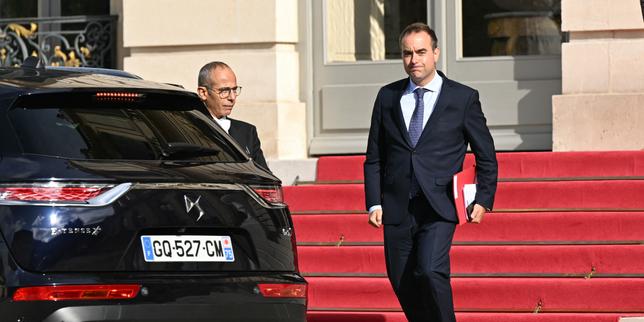Sébastien Lecornu Proposes Tax Relief for Employees and Low-Income Families
Sébastien Lecornu outlines plans for tax reductions aimed at employees and low-income families amidst ongoing protests.
- • Proposed tax reductions for employees and couples just above minimum wage.
- • Potential revival of the tax-exempt Macron bonus.
- • Opposition parties demand more comprehensive reforms for low-income workers.
- • Budgetary discussions occur during ongoing union protests for fiscal justice.
Key details
On October 2, 2025, French Prime Minister Sébastien Lecornu revealed potential strategies aimed at reducing tax burdens for employees and low-income households, amidst ongoing union-led protests advocating for fiscal reforms. These budgetary orientations are part of Lecornu's preparations for the 2026 budget, which includes discussions about lowering social charges and income taxes specifically for couples earning just above the minimum wage.
Lecornu's proposals entail possible exemptions from income tax for workers earning approximately €1,476 monthly, a figure that sits just below the threshold for taxation. This initiative aims to alleviate financial pressure on employees transitioning into the tax bracket, thereby treating them similar to single tax filers. Additionally, he is contemplating the revival of the Macron bonus, a previously successful tax-exempt scheme, and measures to facilitate wealth transfers to younger generations.
Amidst these deliberations, opposition parties, including the Rassemblement National (RN) and the Socialist Party (PS), argue that Lecornu's proposals lack sufficient depth. Olivier Faure, the PS's first secretary, criticized the current measures as inadequate for truly addressing the needs of low-income workers, while still expressing a willingness to engage in dialogue with the Prime Minister.
The political backdrop is charged, with ongoing protests reflecting public dissatisfaction with the government's economic policies. Lecornu’s proposals are positioned within this context of civil unrest, as unions have mobilized to advocate for ‘justice fiscale’ and more substantial adjustments in tax policy. While Lecornu has ruled out significant leftist demands such as the reinstatement of the wealth tax and suspension of retirement reforms, he faces pressure from within the legislature to deliver more targeted tax relief, particularly for the working class.
As Lecornu approaches budget finalization expected by mid-October, his government must navigate substantial opposition while aiming to implement measures that resonate with the financially strained public, effectively ensuring financial fairness and support for the lowest earners in France.
This article was translated and synthesized from French sources, providing English-speaking readers with local perspectives.
Source articles (2)
Source comparison
Latest news
Katy Spicher Sues French State for Denial of Justice Over Unsolved 1983 Murder of Her Mother
French Public Sees Rise in Political Violence Amid Pre-Municipal Election Tensions
Businesses Drive French Economy Amid Rising Financial Challenges for Youth
France Climbs to 4th Place in 2026 Winter Olympics Medal Table After Biathlon Relay Gold
XV de France to Field Largely Unchanged Lineup Against Italy in Six Nations
France and India Deepen Strategic Partnership with Focus on AI Regulation and Defense Cooperation
The top news stories in France
Delivered straight to your inbox each morning.


